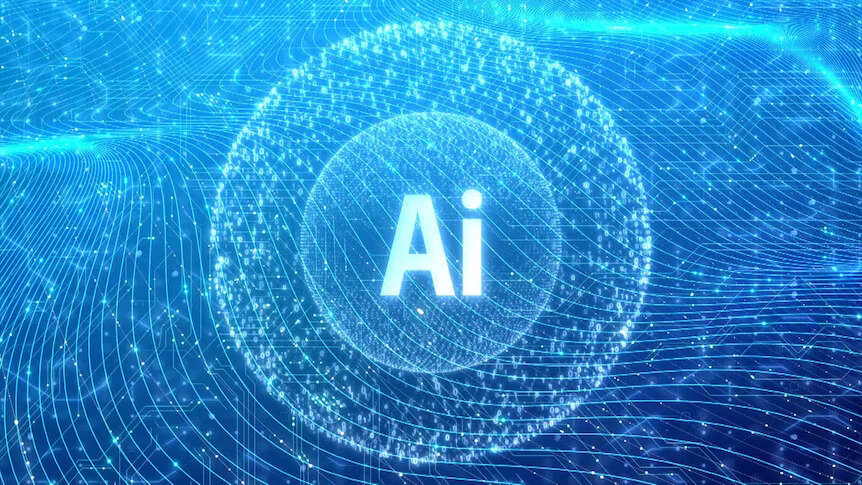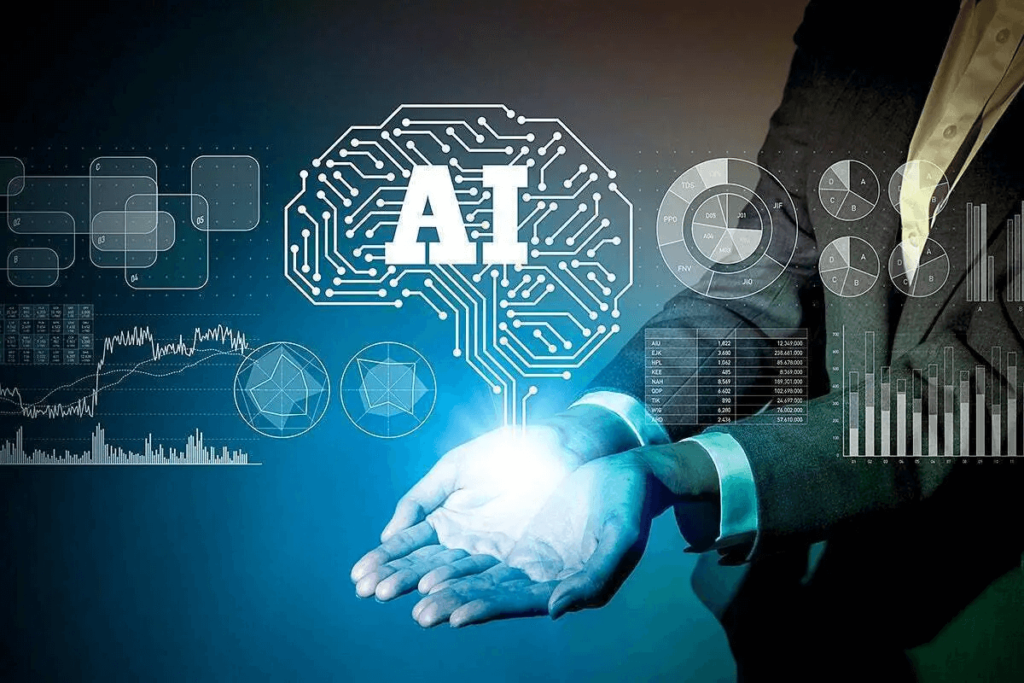
Are you curious about the fascinating ways artificial intelligence (AI) is transforming the landscape of education? Buckle up, because we’re about to dive into the exciting world of EdTech (Educational Technology) and explore the emerging roles for AI professionals. From personalized learning to data-driven decision-making, AI is reshaping education in ways we never imagined. So, what’s the deal with AI in education, and what roles can AI professionals play in this transformative field? Let’s break it down.
The AI Revolution in Education
Before we get into the nitty-gritty of AI’s roles in EdTech, let’s grasp the magnitude of this revolution. AI has stepped into the classroom with a mission: to enhance teaching and learning experiences. From K-12 schools to universities and corporate training programs, AI’s influence is pervasive.
But how exactly is AI making its mark in education?
- Personalized Learning: AI algorithms analyze individual learning patterns and preferences. The result? Tailored lessons, adaptive quizzes, and customized content delivery. Students can learn at their own pace, ensuring no one is left behind or held back.
- Smart Content Creation: AI can generate educational content, from textbooks to interactive simulations. It’s like having an AI-powered personal tutor available 24/7, creating content that matches your learning style.
- Efficient Administrative Tasks: Administrators can breathe a sigh of relief as AI handles administrative chores, such as scheduling, student enrollment, and grading. It frees up educators’ time for more meaningful interactions with students.
- Early Intervention: AI can identify struggling students before they fall too far behind. It raises a virtual red flag when a student’s performance takes a dip, enabling timely intervention.
- Data-Driven Insights: AI crunches mountains of data to provide insights on teaching methods and curriculum effectiveness. It helps educators make informed decisions to improve learning outcomes.
Now, let’s get to the exciting part: the roles AI professionals play in this educational transformation.
The Multifaceted Roles of AI Professionals in EdTech

1. AI Curriculum Designer
Question: What’s the secret sauce behind a curriculum that keeps students engaged and motivated?
Answer: AI curriculum designers! They use AI algorithms to create dynamic and interactive learning paths. These professionals craft personalized journeys that adapt to each student’s progress, ensuring that learning is both effective and enjoyable.
2. Learning Analytics Specialist
Question: How can educators identify struggling students and provide timely support?
Answer: Learning analytics specialists utilize AI-driven dashboards to monitor students’ performance in real-time. They interpret the data, identifying at-risk students and enabling educators to step in with targeted interventions.
3. AI-Powered Content Creator
Question: Who’s behind the creation of those AI-generated textbooks and engaging e-learning modules?
Answer: AI-powered content creators, of course! AI professionals in this role use natural language processing and machine learning to generate high-quality educational content that keeps learners hooked.
4. EdTech Data Scientist
Question: What’s the key to improving educational outcomes on a broader scale?
Answer: Enter the EdTech data scientist. They dive into the vast sea of educational data to discover trends, patterns, and opportunities for improvement. Their insights shape the future of education.
5. Virtual Reality (VR) Education Developer
Question: How can students immerse themselves in history, explore distant planets, or dissect virtual frogs?
Answer: Thanks to VR education developers, students can embark on these virtual adventures. AI professionals in this field create immersive educational experiences using VR technology.
6. Chatbot Educator
Question: Who’s available 24/7 to answer students’ burning questions and provide instant help?
Answer: Chatbot educators, powered by AI! They create chatbots that serve as virtual tutors, offering assistance and explanations whenever students need them.
7. AI-Powered Teacher Assistant
Question: How can teachers manage the diverse needs of their students in a digital classroom?
Answer: AI-powered teacher assistants are here to lend a hand. They help educators by automating administrative tasks, grading assignments, and providing insights to optimize teaching strategies.
Qualities of a Successful AI Professional in EdTech
So, you’re intrigued by these emerging roles and want to jump into the world of AI in education? Fantastic! But what qualities make a successful AI professional in EdTech?
- Adaptability: The EdTech landscape evolves rapidly. Being adaptable and open to learning new technologies and methods is essential.
- Creativity: Thinking outside the box is a must. You’ll be tasked with finding innovative solutions to enhance learning experiences.
- Data Literacy: Comfort with data is a prerequisite. You’ll be swimming in data lakes, so the ability to interpret and draw insights from data is crucial.
- Communication Skills: You’ll collaborate with educators, administrators, and tech teams. Clear communication is key to bridging the gap between education and technology.
- Problem-Solving Mindset: Expect challenges along the way. A problem-solving mindset will help you overcome obstacles and create effective AI solutions.
The Future of AI in Education

What lies ahead for AI in education? Brace yourself for even more exciting developments. As AI continues to advance, we can anticipate:
- AI-Powered Mentorship: AI mentors guiding students through their educational journeys, offering career advice, and helping them make informed choices.
- AI-Enhanced Assessments: AI-driven assessments that measure not just knowledge but also critical thinking and problem-solving skills.
- Global Access to Education: AI breaking down geographical barriers, providing quality education to remote and underserved areas.
- Ethical Considerations: An increased focus on ethics in AI, ensuring fairness, transparency, and privacy in educational AI systems.
AI in education isn’t science fiction; it’s a reality reshaping the way we learn and teach. The roles of AI professionals in EdTech are diverse and vital, from crafting personalized curricula to deciphering educational data. If you’re passionate about education and technology, these emerging roles offer an exciting frontier to explore.
As we journey forward, envision a future where AI isn’t just a tool but a trusted companion in the world of education. A future where learning knows no boundaries, where students receive tailored guidance at every step, and where educators have the power of data at their fingertips to refine their teaching methods.
So, are you ready to join the AI revolution in education? The future of learning is in your hands, and with the fusion of human expertise and artificial intelligence, we’re on the cusp of creating a more accessible, adaptable, and inclusive educational landscape for generations to come. Embrace the opportunities, and let’s shape the future together!
FAQs: AI in Education – Your Burning Questions Answered
Are you intrigued by the role of AI in education but still have some lingering questions? No worries; we’ve got you covered. In this FAQ, we’ll tackle the most common queries about AI in education and the emerging roles for AI professionals in EdTech.
1. What is EdTech, and how does AI fit into it?
EdTech is short for Educational Technology, which encompasses the use of technology to enhance and support education. AI plays a crucial role in EdTech by powering various applications like personalized learning, smart content creation, and data-driven decision-making to improve the overall educational experience.
2. How does AI personalize learning for students?
AI analyzes students’ learning patterns, strengths, and weaknesses. Using this information, it tailors learning materials, pacing, and assessments to suit each student’s unique needs, ensuring a more personalized and effective learning journey.
3. What is the difference between a Learning Analytics Specialist and an EdTech Data Scientist?
A Learning Analytics Specialist primarily focuses on real-time monitoring of students’ performance and provides immediate insights to educators. An EdTech Data Scientist, on the other hand, dives deep into educational data to uncover trends and patterns, which can inform long-term strategies and improvements.
4. Can AI-powered content creators replace human teachers?
AI-powered content creators can generate educational materials efficiently, but they are not a substitute for human teachers. Teachers provide crucial emotional support, mentorship, and guidance that AI cannot replicate. AI and teachers can work together to enhance the learning experience.
5. Are there ethical concerns with AI in education?
Yes, ethical concerns exist, especially regarding data privacy, bias in AI algorithms, and ensuring fair access to technology-enhanced education. The field of educational AI is actively addressing these concerns to create more equitable learning environments.
6. What skills do I need to become an AI professional in EdTech?
To excel in AI roles in EdTech, you should have skills such as adaptability, creativity, data literacy, strong communication, and problem-solving abilities. A solid understanding of AI technologies and their applications in education is also essential.
7. How can I prepare for a career in AI in education?
Start by gaining a strong foundation in AI and machine learning through courses and certifications. Familiarize yourself with the latest trends in EdTech and stay updated on educational practices. Networking with professionals in the field can also provide valuable insights and opportunities.
8. What does the future hold for AI in education?
The future of AI in education is exciting. We can expect AI to play a more significant role in mentorship, assessments, global education access, and ethical considerations. It will continue to evolve and shape the way we learn and teach.
9. How can educators and schools integrate AI into their teaching methods?
Educators can start by exploring AI-powered educational tools and platforms that offer features like personalized learning, automated grading, and data analytics. Collaborating with AI professionals or data scientists can help tailor AI solutions to specific educational needs.
10. Is AI in education only for formal schooling, or can it benefit lifelong learners too?
AI in education is beneficial for learners of all ages. Whether you’re in formal schooling, pursuing higher education, or engaging in lifelong learning, AI can adapt to your needs and enhance your learning experience.